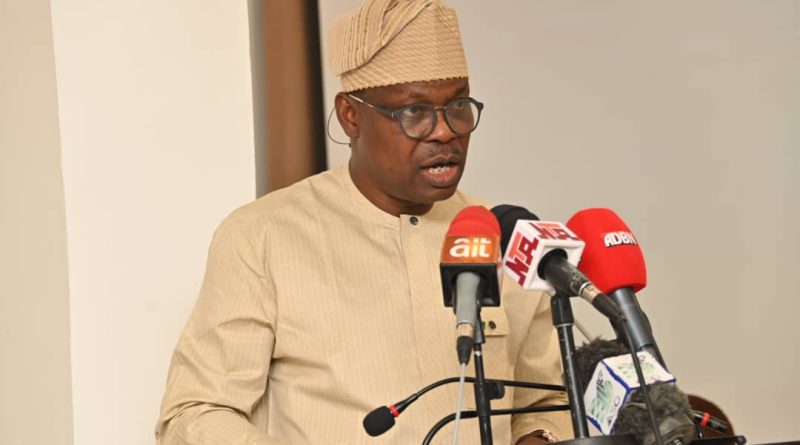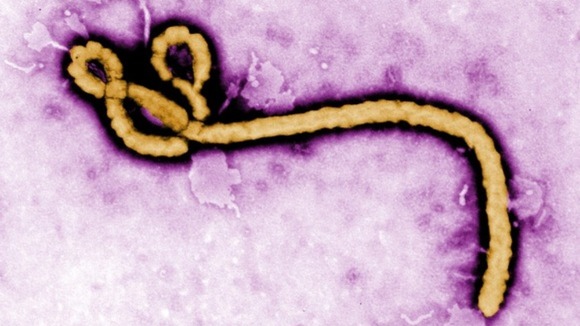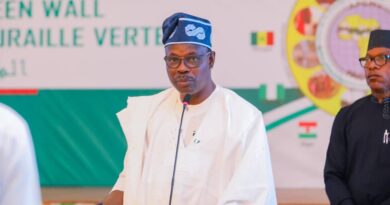ECOWAS Countries Must Secure The Livelihoods of Indigenous People, Halt Climate Migrants – Salako
Abuja- There is inequity in the ways countries are impacted by the biodiversity and climate crises. In West Africa, a lack of solutions means that communities will become poorer, food security jeopardized and rural populations forced to relocate as its already happening in many of our countries. Nigerian Minister of State for Environment, Dr. Iziaq Kunle Salako, stated this in his keynote address at the Economic Community of West African States, ECOWAS Coordination Meeting on “30 By 30” which was held at Johnwood Hotel in Abuja on Monday, February 19, 2024. He said the population of climate migrants and environmentally displaced people is rising in the ECOWAS subregion. He charged members States to produce a regional 30 by 30 implementation plan which would secure the effective protection of at least 30% of the ECOWAS region to preserve the life-giving ecosystems and to halt immediately the human-induced extinction of wild species.
Salako said, “While the ECOWAS region may have the lowest GDP in the world, it is one of the most biodiverse regions on the planet and is massively represented within the High Ambition Coalition for Nature and People, which all ECOWAS countries joined to advocate for a commitment to expand protected areas to at least 30% of the Planet by 2030. By launching The ECOWAS appeal for an ambitious global response to the biodiversity crisis, our region played a significant role in securing the adoption of this commitment in Target 3 of the Global Biodiversity Framework. For this I warmly congratulate you and invite you to please stand up and thumb up for West Africa. ECOWAS…Thumbs up.
“Through this meeting today, we are gathering to plan the next steps and to turn our ambitions into concrete actions. Proudly, we can say ladies and gentlemen, that we are not starting from scratch as our region is already ahead and continues to lead with determination on planning for the regional contribution to 30 by 30.
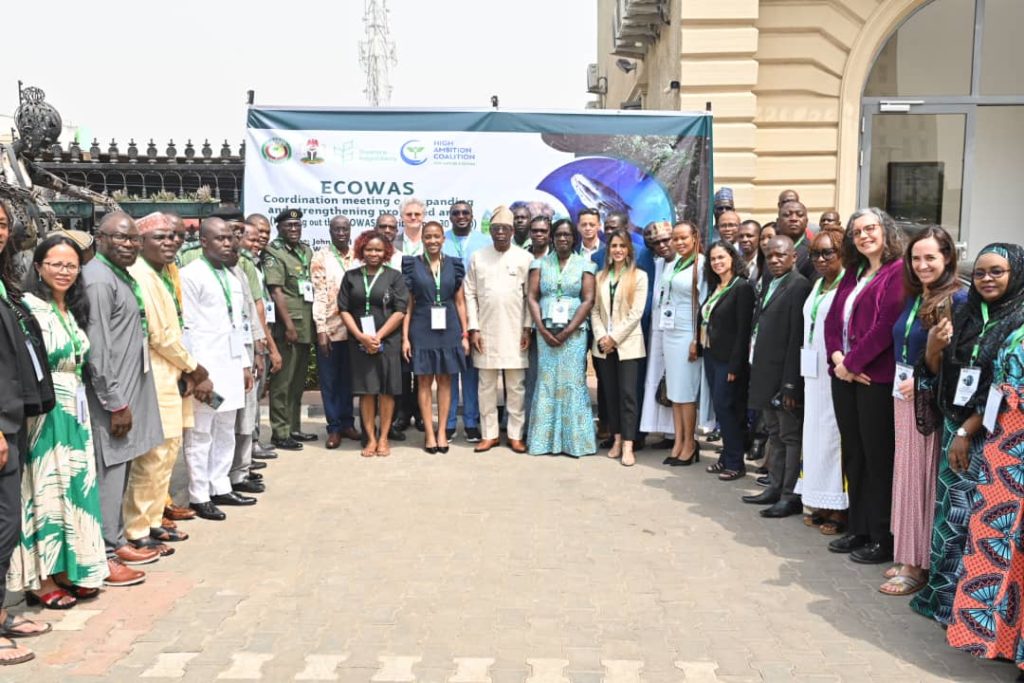
“Just three months ago, in this very room, the Government of Nigeria hosted the ECOWAS Coordination Meeting for Prompt Ratification of the BBNJ Treaty to pave the way towards the adoption of measures to highly and fully protect 30% of our oceans. And before then in October 2022, again in this very room, our region adopted targeted guidance on the implementation of 30 by 30 which we will endeavor to refine in the coming days.
“As I reflect on the importance of the successful implementation of 30 by 30, I see that the stakes are high for ECOWAS countries and for Africa being the continent most vulnerable to the effects of climate change.
“It is clear that there is inequity in the ways countries are impacted by the biodiversity and climate crises. For us In West Africa, a lack of solutions means that our communities will become poorer, our food security jeopardized, and our rural populations forced to relocate as its already happening in many of our countries. It is a fact that the population of climate migrants and environmental displaced people is rising in our subregion. This is why your presence in this room is so vital, as you are entrusted with an important mandate to produce a regional 30 by 30 implementation plan which seeks to secure the effective protection of at least 30% of the ECOWAS region to preserve our life-giving ecosystems and to halt immediately the human-induced extinction of wild species.”
The Minister added that the ECOWAS region is the only part of the world that is looking at its contribution to halting biodiversity loss through a regional lens, a template critical for global success and to securing nature for future generations. He said the healthier the region’s biodiversity is, the better it will be in withstanding future climate and biodiversity shocks and the more resilient to continue to deliver for the people.
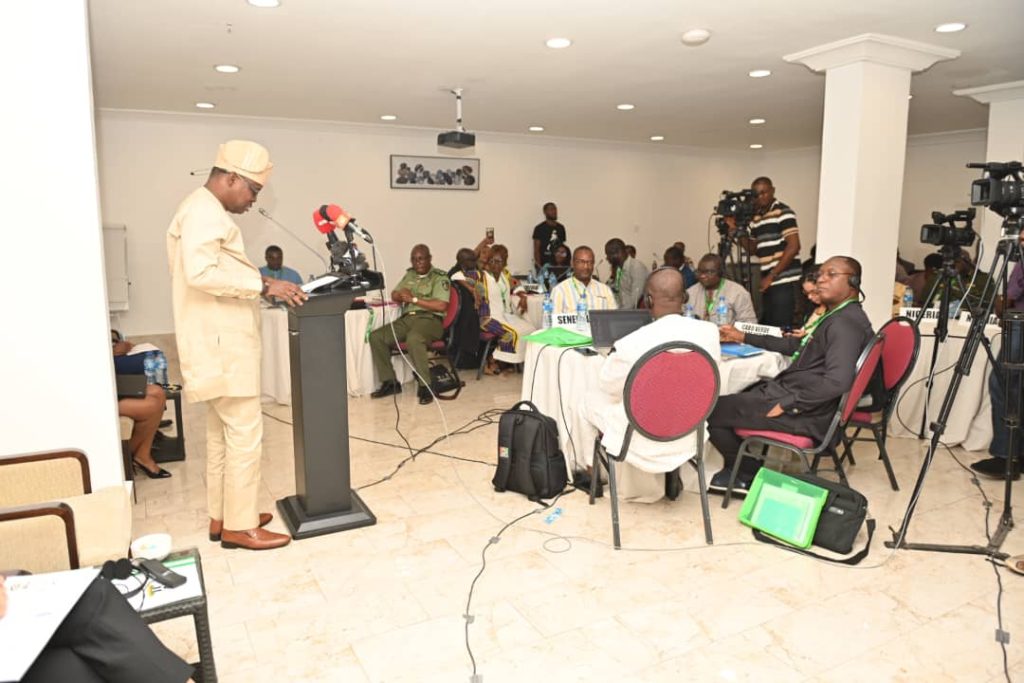
Salako said, “I want to trust that through your work in the coming days, ECOWAS will take the lead in ambition for biodiversity once again. We will work through the difficult technical aspects and conceive new paths forward, knowing that the eyes of the world are upon us. Our hard work to expand and strengthen our protected areas will serve not only as a sign of our commitment but also as a wake-up call to the rest of the world. If we can do this work here where we lack the resources of the Global North, what will be the excuse for foot dragging by any region?”
The Minister noted that the vision of Nigeria and the rest of ECOWAS is to ensure that the World truly unites and responds as one.
” I therefore invite the rest of the world to watch what we do here this week, over the coming months and years. On behalf of Nigeria and the ECOWAS sub-region, I also call on the international community to be more ambitious in its response. Our appeal is for an ambitious and urgent global response to the biodiversity crisis and more financial support to ECOWAS collectively and individually to realize the 30by30 vision.
“When we support one another, we all do better. Over half of global GDP relies on rich biodiversity and healthy ecosystems. Our investment in biodiversity conservation and the 30by30 agenda, is a long term investment in our economies and the future our different countries and indeed the world which will definitely yield return in multiple folds. We should be ready to secure the livelihoods of indigenous peoples and local communities who are the best protectors of the world’s richest biodiversity gifted to our sub-region. I strongly believe that we are ready to act together to protect the lands and oceans that provide our generous ecosystem services and give rise to our utterly unique environments.
“Let recommit Nigeria to continue to play her leadership role in mobilizing and organizing West Africa to protect our regional biodiversity, the hotspot of global biodiversity. The President of my country President Bola Ahmed Tinubu GCFR, who is also the Chairman of ECOWAS is a committed environment advocate and climate hero who has prioritized sustainability as a core principle of his economic agenda. The 3 planetary crisis of climate change, biodiversity loss and pollution is therefore receiving adequate attention in the presidential mandated deliverables of the Nigerian Federal Ministry of Environment”, Salako concluded.

